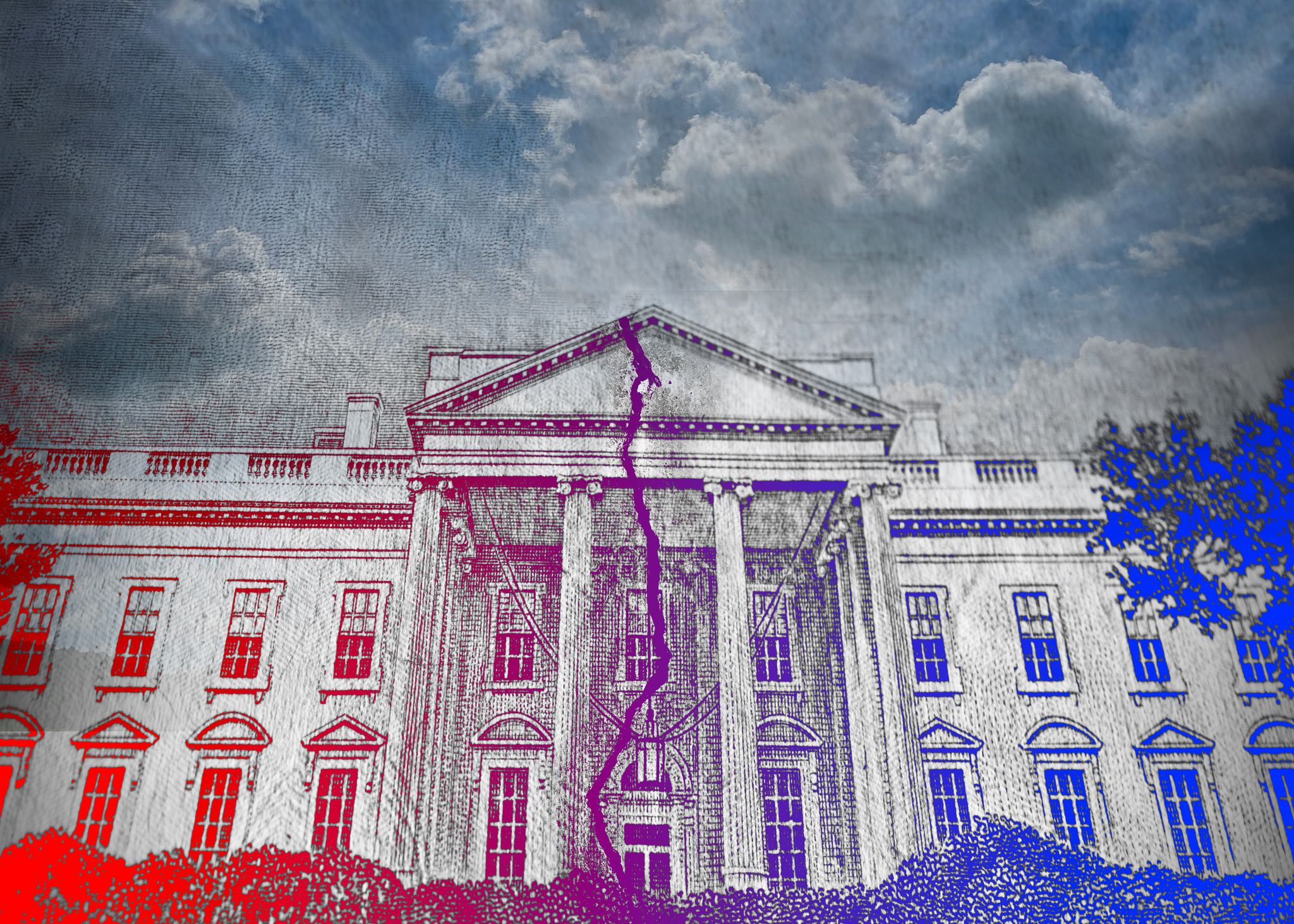The Left has always worshipped violence, so its recent exuberance is no surprise.
Reevaluating the U.S.-Israel Relationship

The U.S. should double down on its support of Israel.
The question of the Israel-U.S. relationship has taken center stage in American political discourse as the Gaza War grinds past the six-month point and civilian casualties mount. The anti-Zionist Left, naturally enough, has been demanding a ceasefire since before the sun had set on October 7, but foreign policy “realist” voices have been heard from, too. John Mearsheimer of the University of Chicago has long held that the closeness of the relationship between the U.S. and Israel is a mistake in American global strategy, and he has been making the rounds, explaining his view. CATO Institute analyst Jon Hoffman similarly argues—in a major piece in Foreign Policy that was amplified by Kenneth Roth, the dean of enlightened Foggy Bottom humanitarianism—that “it’s past time for a fundamental reevaluation of the U.S.-Israel relationship.”
But the “realist” argument vis-à-vis Israel is wrong. America has a strategic interest both in supporting Israel and in opposing the Palestinian Arabs and their cause. Hoffman’s claim regarding American national interest focuses on two major points: maximizing U.S. popularity with the world and humanitarian concerns. But America has other important national interests in the Middle East (and the world) that the realist argument ignores.
The U.S. has a primary interest in ensuring its own physical security and that of its citizenry from foreign attack. Palestinian groups, including Hamas and Islamic Jihad, along with their allies and backers in the Iranian proxy groups and Sunni jihadist groups that also support them, all target the U.S. and its citizens for terror attacks. They have killed thousands of Americans, on 9/11, in Iraq and in Afghanistan, on airlines, on cruise ships, on buses, etc. While all of them claim to do so because of U.S. support for Israel, they also despise the U.S. for leading the charge for secularism, and for a myriad of other reasons—for putting U.S. troops in Saudi Arabia, for opposing Iranian attempts at hegemony, for peacekeeping (in Lebanon), for promoting women’s rights, etc. Meanwhile, Israel has never knowingly attacked the U.S. or killed and wounded Americans or sought to harm them.
The U.S. also has an interest in protecting its own economic well-being by keeping oil and natural gas lanes in the Middle East flowing to the world. While many American radicals demand “no blood for oil,” the fact remains that the world needs fossil fuels to keep the global economy chugging along. One can argue that American allies around the world should not rely on American power to keep the sea lanes open, but this is the role of the United States until it changes.
The Houthis of Yemen, who are Iranian proxies in Iran’s war with Saudi Arabia, have attacked fuel shipments going through the Red Sea, and driven up fuel prices. While the Houthis claim this has to do with the Jews, it is really because Iran wants them to weaken the U.S. and the Sunni Arab states and promote Iran’s own power. Hamas is allied with Iran and the Houthis, and a Palestinian state led by Hamas would certainly endanger the Sunni Arab states, including oil producing states.
The U.S. also has an interest in bolstering the interests and security of its allies—i.e., positive reinforcement—and alternatively, in undermining or punishing its opponents so as to incentivize pro-U.S. policies. Israel backs the U.S. over 90 percent of the time at the U.N. It is a bitter enemy of, and has fought against or threatened, many of the same terrorists and rogue states that the U.S. has found itself in conflict with, including Iran, Iraq, Hezbollah, al-Qaeda, Hamas, ISIS, etc. In 1970, to cite a little-known example, at the behest of President Nixon, Israel mobilized its troops to intimidate Syrian troops then invading Jordan, prompting the Syrians to retreat. Israel also provides crucial intelligence to the U.S. and “has facilitated U.S. efforts to deal with emerging soft security challenges related to economic competitiveness, the information technology revolution, resource sustainability, and public health.” Furthermore, Israel essentially field tests U.S. military technology, and its tech sector works closely with the U.S. defense industry in developing and refining battle-ready hardware and software.
Meanwhile, the Palestinian Arabs have provided little to nothing for the U.S., and neither has the Iranian regime.
The U.S. has an interest in balancing power in every region so as to deter future wars and help stabilize the world. Currently, President Biden (and Obama before him) is trying desperately to tilt the balance of power in favor of the Iranian regime, which hates the U.S. and is seeking nuclear weapons. The U.S. shouldn’t be doing this. The correct play is to back Israel and the Sunni Arab states including Egypt, Jordan, Saudi Arabia, UAE, Morocco, etc., all of whom oppose Iran. The Palestinian Arabs have a long and troubled history of endangering and terrorizing other Sunni Arab states, including Egypt, Syria, Kuwait, Lebanon, and Jordan, many of which are U.S. allies. Some might remember the Palestinian Arab attempted coup in 1970 in Jordan, where Palestinian Arabs already made up (and still make up) a majority of that nation.
As Hoffman discusses, the U.S. has an interest in maximizing its popularity and credibility with other nations. Hoffman reasons that this requires the U.S. to downplay its support of Israel and embrace the Palestinians. But this view is debatable and also unquestionably incomplete. The popularity of the Palestinian cause is driven to a great extent by world-wide antisemitism. If the U.S. embraces the Palestinian cause it would give at least the perception of caving to Jew hatred. Moreover, while the Arab/Muslim world professes to back the cause of the Palestinian Arabs, in truth most of the Arab world leadership gives the Palestinian cause only lip service. Hoffman ignores the salient concept that “power is respected; weakness is not.” In the Middle East, this concept was popularized by Osama Bin Laden’s promotion of the “Strong Horse Theory,” in which he stated that most Muslims respect and support a strong nation, even if that nation is not always friendly toward them, rather than a weak nation that keeps trying to endear itself to them.
The U.S. certainly has an interest in maximizing human rights and democratic values throughout the world. Hoffman touches upon this topic, though his argument is weak because it largely accepts Hamas propaganda as truth. Israel is not committing genocide, they are not targeting Palestinian civilians, and the Hamas casualty numbers are not correct. Everyone would like to see the Palestinians living under a democratic regime that protects their rights. But there is a slim chance that whatever entity emerges to govern Gaza will do much to help the Palestinians: it hasn’t happened under the Palestinian Authority or Hamas, and they won’t do this in a new state.
The U.S. has an interest in aiding the victims of aggression and opposing the aggressors, because the U.S. doesn’t want to incentivize violence throughout the world. So we can’t ignore the fact that Hamas initiated the conflict with a brutal terror attack that slaughtered 1,200 Israeli citizens. None of their victims were preparing to attack any Palestinians—many were actually attending a music concert promoting peace—so October 7 was certainly not an act of self-defense.
Putting all this together, any objective observer would inevitably come to the conclusion that the U.S. should double down on its support of Israel and ignore the Palestinian cause, the latter of which is simply not in the interests of the United States.
The American Mind presents a range of perspectives. Views are writers’ own and do not necessarily represent those of The Claremont Institute.
The American Mind is a publication of the Claremont Institute, a non-profit 501(c)(3) organization, dedicated to restoring the principles of the American Founding to their rightful, preeminent authority in our national life. Interested in supporting our work? Gifts to the Claremont Institute are tax-deductible.
Critiquing Samuel Huntington’s famous thesis in 2024.
South Africa's radical decolonization efforts are an abject disaster.
Postcolonialism rivals Jacobinism and Bolshevism in its systematic destruction of civil society.
The fringes are fraying.
Olaf Scholz appears ready to import more Muslims.






